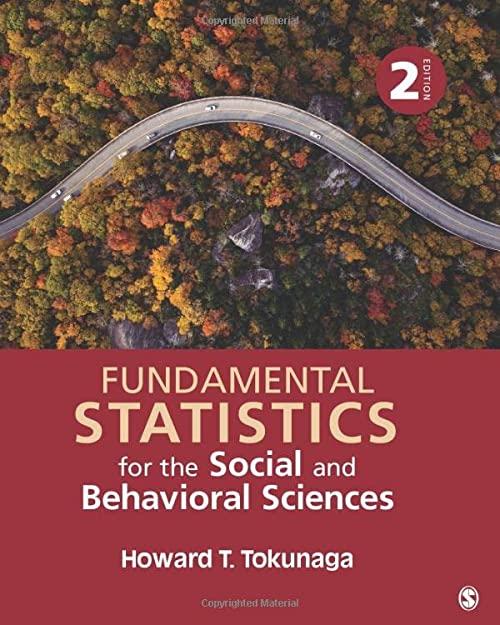A researcher hypothesizes that an afternoon dose of caffeine lessens the amount of time a person sleeps
Question:
A researcher hypothesizes that an afternoon dose of caffeine lessens the amount of time a person sleeps at night. The participants are instructed to report their average hours of sleep per night for a week without any caffeine in the afternoons and their average amount of sleep for a week in which they drink two caffeinated beverages between 2 and 3 p.m. Using their reported data, run through the steps of hypothesis testing to test the research hypothesis.
a. For each of the two caffeine conditions, calculate the sample size \(\left(N_{i}\right)\), the mean \(\left(\bar{X}_{i}\right)\), and the standard deviation \(\left(s_{i}\right)\).
b. Calculate the mean \(\left(\bar{X}_{D}\right)\) and the standard deviation of the difference scores \(\left(s_{D}\right)\).
c. State the null and alternative hypotheses \(\left(\mathrm{H}_{0}\right.\) and \(\left.\mathrm{H}_{1}\right)\).
d. Make a decision about the null hypothesis.
(1) Calculate the degrees of freedom ( \(d f\) ).
(2) Set alpha \((\alpha)\), identify the critical values (draw the distribution), and state a decision rule.
(3) Calculate a value for the \(t\)-test for dependent means.
(4) Make a decision whether to reject the null hypothesis.
(5) Determine the level of significance.
e. Draw a conclusion from the analysis.
f. Relate the result of the analysis to the research hypothesis.
Step by Step Answer:

Fundamental Statistics For The Social And Behavioral Sciences
ISBN: 9781506377476
2nd Edition
Authors: Howard T Tokunaga




